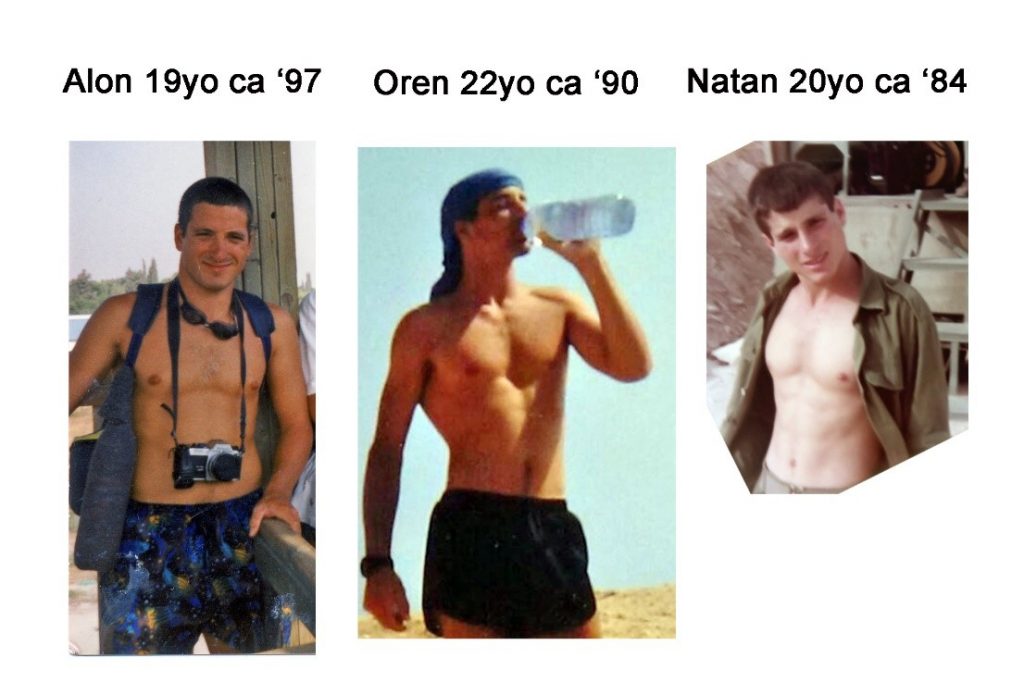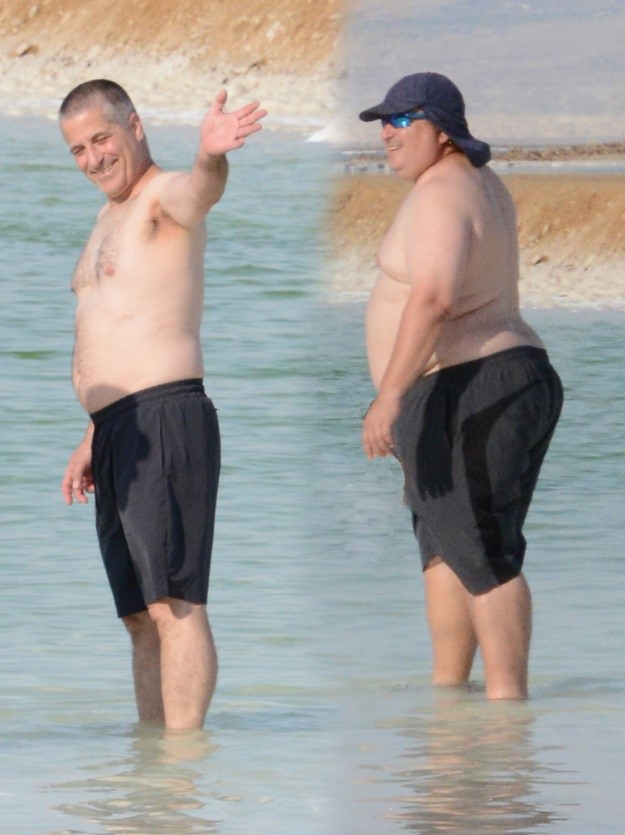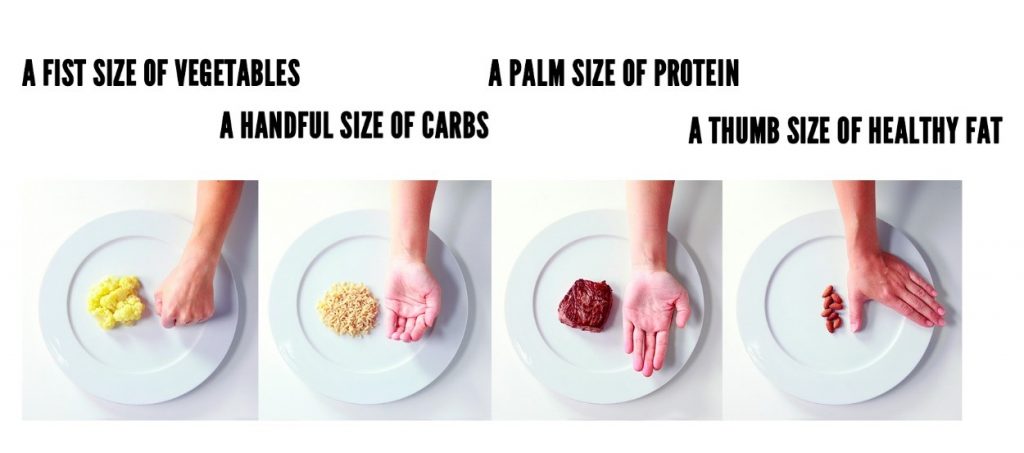As a nutritional coach and a fitness trainer I often see people who tell me, they “want to lose some weight”. People sometimes look at me and say: you are just lucky, you have good genes.
They may be right. Here is a picture of me and my 2 brothers when we were all in our early 20s. The three of us were lean at that stage of our life.

As you can see, the 3 brothers were all lean at that age. We all share the same genetics. In fact, we share some “fat genes” for sure.
Here is a picture of the mother of these 3 lean guys, not long before she undertook bariatric surgery due to extreme obesity.

Of course, genetics play a part in all our lives. Some people are just naturally lean and can eat anything they want, whenever they want to. However, most people are not like that. My little brother, despite his lean picture above, was always just a bit rounder than his other 2 brothers.
Over time, our habits become much more of an influence on our physique than our predisposition. Here is a picture of my 2 brothers now.

As you can see, over the years the leanness has made way for roundness. One more than the other.
These things don’t happen overnight. We gain weight gradually over time and similarly, it is impossible to lose weight instantly. It takes work, discipline, and time.
It is much easier to STAY lean than to BECOME lean. There is no magic about staying lean. It is relatively simple. If over time, the body is given more calories than it needs, the body will store the excess as fat. If the body is getting less than it needs, the body will shed fat.
However, the body does not like when we suddenly restrict calories. Our natural survival instinct will kick in if we suddenly deprive ourselves of calories. The body will go into “protective mode”.
Historically, humans did not have such easy access to plentiful, calorie-rich foods. There were periods of scarcity, droughts and many other factors. Our body evolved to protect itself when calories are restricted. Often the exact opposite may happen when one goes on a severely restrictive diet. The body, having gone into self-preservation mode will reduce the metabolic rate and store available calories as fat.
For most of us, it is never important to count calories or look at macronutrient levels. Following a simple portion guide will provide great results.
This portion guide is great and simple to follow. For a typical man, just multiply by 2. For a woman, just have one of each food group every meal and you will be fine.

Following a portion guide like this means no calorie counting. No micronutrient calculation. Beyond that, it is a simple visual that could help us not eat too much. Think about these pictures every time you eat. Do you really need that mountain of pasta?
The important part to think about when one wants to be lean is: “Am I willing to put the work in and to make the sacrifices required?” Obtaining a fitness-model physique is not really something most of us should strive for. Even the simple statement “I want to have a six-pack” is generally not achievable for most without significant sacrifices. We all have a six pack… the reality is that it is hiding behind a layer of fat for most of us.
Make small, simple changes.
The analogy of a freight liner comes to mind. If a large ship sets course from London to North America and the course is not adjusted all the time it may end up in Australia. The changing ocean currents will take it off course, the winds might further change direction. Even the natural rotation of earth will case the course to change.
It is the same with our body and physique. Most of us are lean in our late teens and into our 20s. However, over time, as work stresses mount, new habits form, we start changing. We eat more, we move less. This is compounded by slowing metabolism as we age. For women, hormone level swings both during the month with the ovulation cycle and over the years as they enter menopause. This significantly effects eating habits and metabolism. For men, as they age, muscle mass decreases (muscle is a great calorie burner) and testosterone levels decline. These things effect both eating and exercise ability and thus effect body composition.
However, if we monitor ourselves like the ship captain monitors the course, we can make small corrections. A little less sugar here, one less alcoholic drink there and as habits improve, the fat will dissipate.
There are so many diets out there and some are pretty extreme. Yes, many work but mostly they all work in similar ways. They restrict the calories you consume:
Intermittent fasting = less calories over a 24-hour period.
Keto = mostly low glycemic index foods and overall lower calories.
The list goes on. The truth is: the best diet is the healthy diet that works for you! Something you can do every day for the rest of your life.
